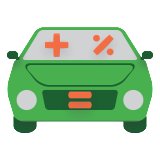
If you’d like to pay off your credit card debt as inexpensively as possible, you have a couple of options: 0% APR balance transfer credit cards and personal loans. Both could save you money in interest payments over your current card, but there are other factors to consider before you decide which to use.
What interest rate and fees will you pay?
Balance transfer credit cards with 0% APR allow you to pay off your debt interest free, as long as you can do so within an introductory period. After that, your rate will increase—and any balance you still have will be subject to it.
There are no free rides on personal loan interest, but rates are typically much lower than credit cards’, and they’ll be consistent during your loan term. So will your monthly payments. Both loans and balance transfers also involve fees, so read the fine print before you sign.
If you can easily pay off your debt within the introductory period, consider a credit card balance transfer. Otherwise, a personal loan might be better.
How long do you need to pay off your debt?
Make sure you commit to a realistic monthly payment, whether you choose a balance transfer or a personal loan. If you can’t reasonably pay off your debt within the given introductory period, a credit card balance transfer is unlikely to save you money in interest. On the other hand, you can carry a balance on a credit card. Personal loan terms tend to be short and the consequences for not meeting your payments could be drastic, especially if you’ve used your house as collateral.
Paying a standard rate on your credit card debt won’t be a money-saver, but it’s better than losing your home. If you need flexibility in your loan term, choose a balance transfer.
What kinds of credit do you have already?
Earning a better credit score is one of the most visible benefits of being debt-free. And the way you choose to pay down your debt can also give your credit a boost. Credit bureaus like to see customers manage different types of credit. Credit cards are an example of revolving credit, whereas loans are installment credit. If you’re not already paying off a loan, taking one out—and making on-time payments—may help your score more than getting another card.
No matter how you choose to do it, paying down your debt and staying debt-free are the best ways to improve your credit score.
The bottom line
Paying off your debt is an admirable goal, but if you don’t have a strict budget in mind, you’re unlikely to succeed, no matter what method you choose. Balance transfers are more trouble than they’re worth if you can’t axe your balance within the introductory period. And personal loans usually come with fees if you can’t cover monthly payments. Before you pick a debt payment option, take a close look at your finances and determine how much you can afford to pay. Then stick to it!
Interesting facts
Additional information




|
Personal Loan Calculator Free Mobile Application (Rishi)
|

|
Credit Calc [Download] Digital Software (Smart Touch Premium-151991-151991)
|




|
Wholesome Sweeteners Fair Trade Organic Sugar, 16-Ounce Pouches (Pack of 12) Grocery (Wholesome Sweeteners)
|

|
Auto Loan Calculator Mobile Application (Ten Gallon Apps, LLC)
|
|
|
Debt Reduction Tracker Mobile Application (Aspiring User Apps)
|








